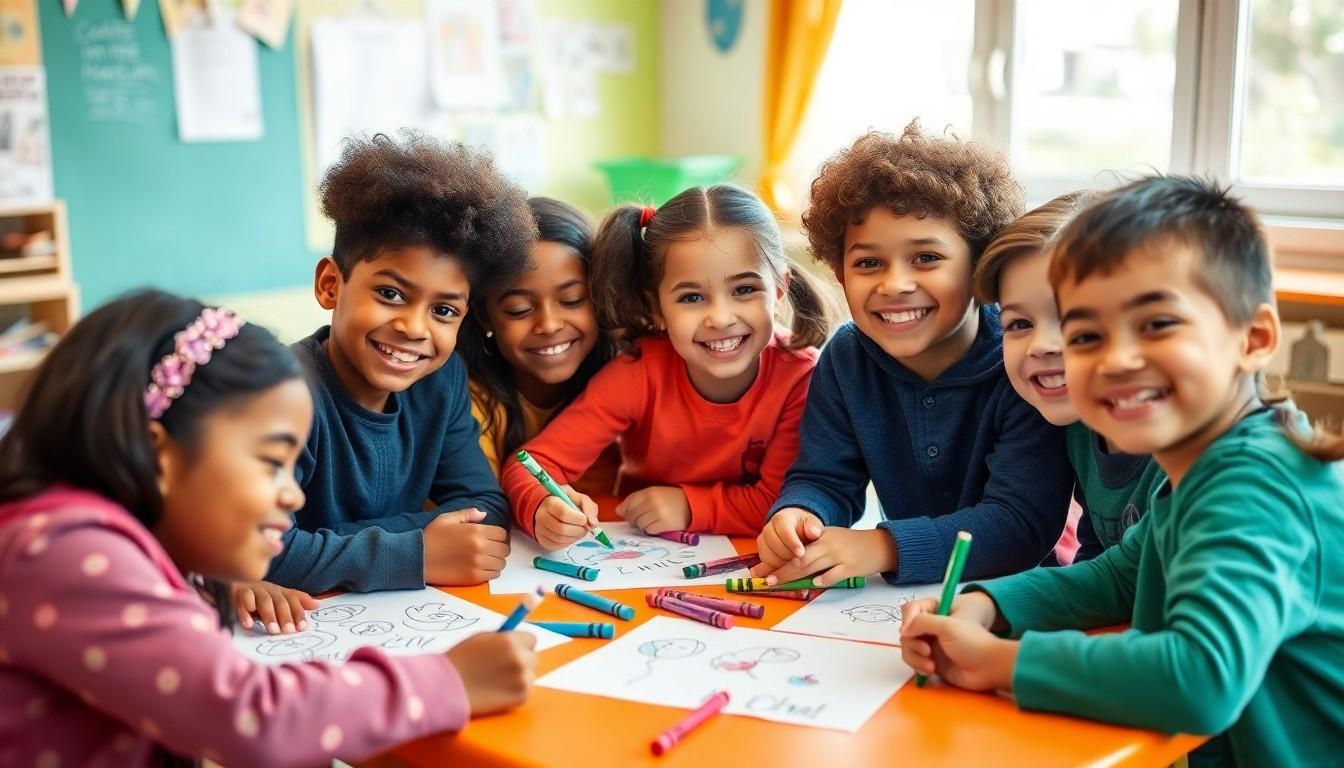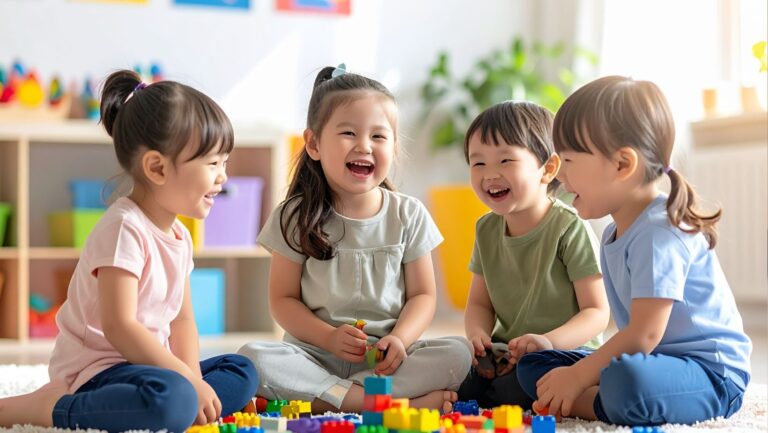Table of Contents
ToggleKids today face a whirlwind of emotions, from the highs of playtime to the lows of homework drama. Navigating these feelings can be tricky, and that’s where mental health worksheets come in. Think of them as superhero capes for young minds, helping kids tackle anxiety, boost self-esteem, and unleash their inner emotional warriors.
Overview of Mental Health Worksheets for Kids
Mental health worksheets support children in navigating their emotions and building coping skills. These worksheets offer structured activities that encourage self-reflection and emotional expression. Kids engage with various topics, such as anxiety, gratitude, and mindfulness, through interactive exercises.
Worksheets often include prompts and illustrations to stimulate discussion and understanding. Specific activities may involve journaling about feelings or creating visual representations of emotions. Such tasks empower children to articulate their thoughts and feelings clearly.
Incorporating these worksheets into a child’s routine contributes to developing emotional intelligence. Parents and educators can use these tools to facilitate open conversations about mental health. Implementing them during stressful times, like exams or social challenges, can alleviate anxiety.
Different types of worksheets cater to diverse needs, ensuring every child benefits. For example, mood trackers help kids identify emotional patterns, while relaxation exercises teach calming techniques. These varied approaches enhance children’s ability to manage stress effectively.
Research underscores the positive impact of mental health worksheets on children’s well-being. Studies indicate that children using these resources display improved emotional regulation and increased self-esteem. They often find comfort in knowing that their feelings are valid and shared by peers.
Connecting with professional resources, such as therapists, can further enhance the efficacy of these worksheets. This collaborative approach maximizes their impact and ensures comprehensive support for children’s mental health development.
Benefits of Using Worksheets
Mental health worksheets offer numerous advantages for children’s emotional and psychological development. They equip kids with essential tools for navigating their feelings and developing coping strategies.
Skill Development
Worksheets enhance various skills in children. They promote critical thinking through problem-solving activities and help improve decision-making abilities. Structured tasks encourage kids to think creatively, fostering resilience. As children engage in these exercises, they learn to set goals and reflect on their experiences. This reflection promotes self-awareness, allowing kids to make informed choices. Frequent practice leads to stronger communication skills and better interaction with peers. Additionally, using worksheets in a fun, engaging manner encourages consistent use, ultimately leading to long-term benefits.
Emotional Expression
Worksheets facilitate important emotional expression for children. They provide safe spaces for kids to explore feelings without judgment. By articulating their emotions, children gain clarity and understanding of their experiences. Activities like drawing or journaling with prompts allow for deep self-reflection, making it easier to express complex emotions. Engaging with these tools supports emotional literacy, empowering kids to identify and communicate their feelings effectively. Ultimately, this leads to healthier interactions with others and improved emotional regulation. The more children practice these skills, the better they become at articulating their needs, strengthening their emotional resilience.
Types of Mental Health Worksheets
Different types of mental health worksheets help children manage various emotional challenges. These worksheets address specific needs, fostering emotional growth and resilience.
Anxiety Worksheets
Anxiety worksheets provide structured activities to help kids understand and cope with anxiety. Exercises may include identifying anxiety triggers, developing calming techniques, and practicing mindfulness. Children often benefit from visual aids, like charts to track feelings and breathing exercises to encourage relaxation. Engaging in these activities leads to enhanced insight into their emotions and practical strategies for managing stress in daily situations.
Coping Skill Worksheets
Coping skill worksheets focus on teaching effective methods for dealing with difficult feelings. These worksheets generally include activities that promote problem-solving and emotional regulation. For instance, kids might explore different coping strategies through role-playing scenarios or create lists of personal coping tools. Using these resources equips children with essential skills to handle life’s challenges, fostering resilience in the face of adversity.
Self-Esteem Worksheets
Self-esteem worksheets assist children in building confidence and a positive self-image. Activities typically encourage self-reflection, helping kids identify their strengths and achievements. Worksheets might include prompts for gratitude journaling or creative expression through art. As children engage with these materials, they develop a stronger sense of self-worth, which enhances their overall emotional well-being.
How to Implement Worksheets in Practice
Implementing worksheets effectively involves creating an engaging environment for children. This approach encourages emotional exploration and skill development.
Encouraging Participation
Promoting active participation enhances worksheet effectiveness. Kids respond positively to interactive activities that spark their interest. Utilize questions that relate to their daily experiences. Celebrating their efforts fosters motivation. Incorporating colorful illustrations captures their attention, making learning enjoyable. Let children share their thoughts in group settings to build confidence. Empowering them to express their feelings enhances understanding and self-awareness.
Creating a Safe Space
Establishing a safe space is essential for fostering emotional expression. Kids thrive in environments where they feel secure and accepted. Create a judgment-free zone that encourages open dialogue. Allowing privacy during worksheets gives children comfort while they explore their feelings. Emphasizing confidentiality reinforces trust, making them more likely to share. Using calming décor can help ease anxiety and promote relaxation. With the right atmosphere, kids engage more fully, leading to better outcomes in emotional management.
Conclusion
Mental health worksheets for kids serve as essential tools for fostering emotional resilience and well-being. By engaging in structured activities that promote self-reflection and expression, children learn to navigate their feelings more effectively. These resources not only enhance emotional intelligence but also encourage open discussions about mental health.
Creating a supportive environment where kids can explore their emotions without fear of judgment is vital. When children feel safe to share their thoughts, they’re more likely to develop healthy coping strategies. Overall, integrating these worksheets into daily routines can lead to significant improvements in children’s emotional regulation and interpersonal skills, setting them up for a brighter future.





